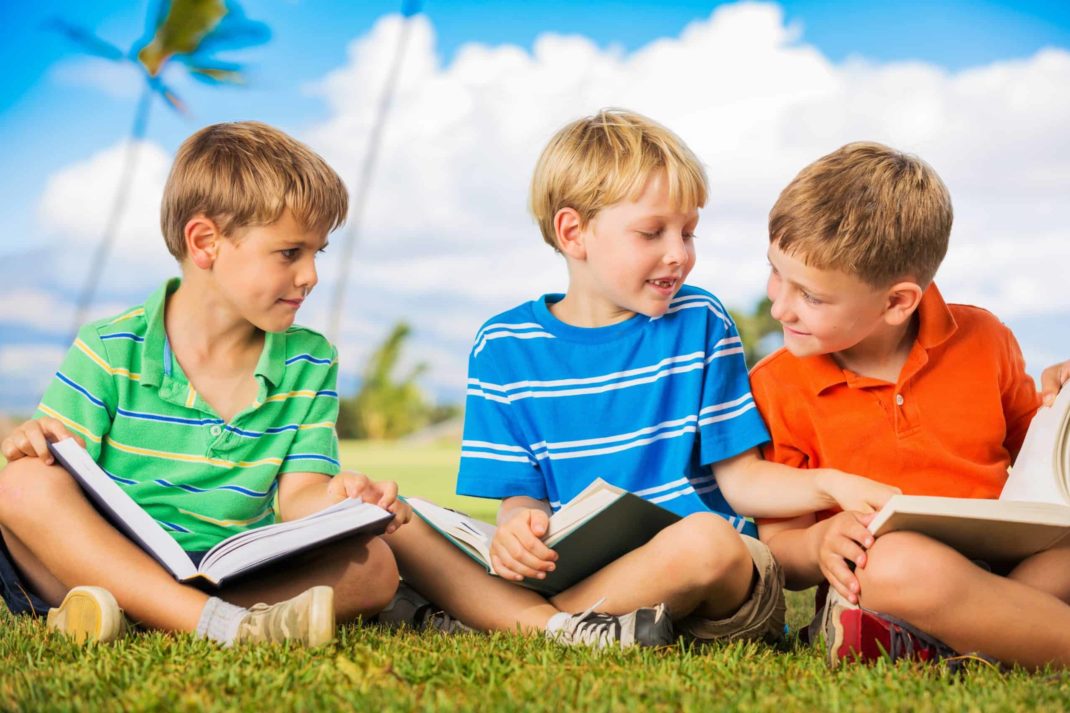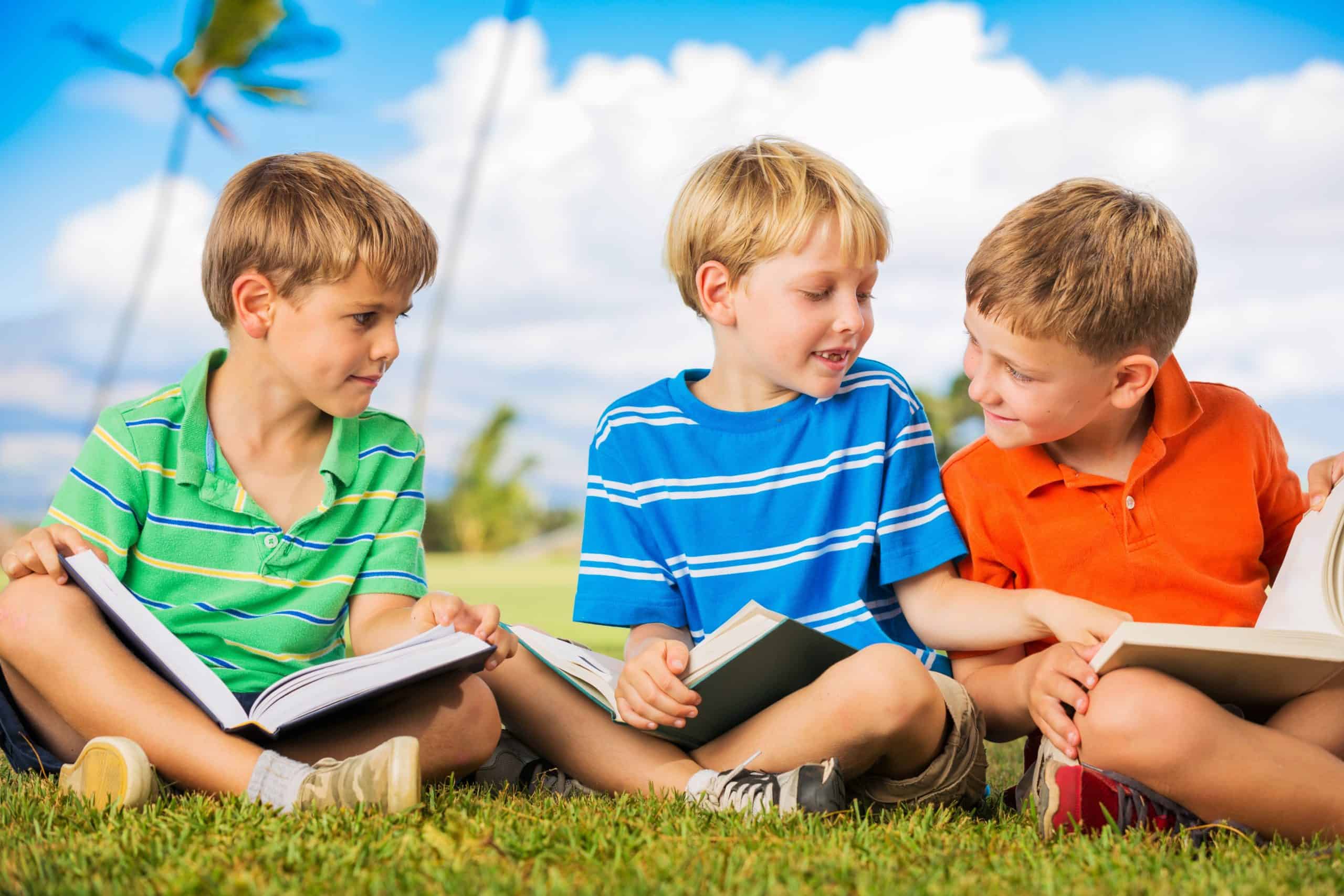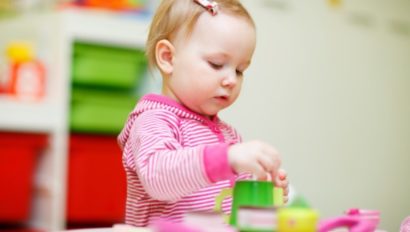Importance of Reading to Child Development

You know what an alligator and a zebra look like, but have you ever actually seen either of them in real life? There are so many things we “know” simply because we’ve read about them. Even if we’ve seen pictures or video of something, without the ability to read, we might have been unable to find or make full sense of those images.
The same is true of with children, only magnified many hundreds of times. Thus, the importance of reading on child development can’t be overstated.
Resources and advice abound in making the case for reading to young children. However, this topic has also been the subject of rigorous scientific study.
Dr. Alan Menelsohn of New York University, led a study, published in the journal Pediatrics, in which parents were recorded on video while reading to their children. The video was then played back for the parents while researchers pointed out the children’s reactions to certain aspects of the experience.
This was used as a way to motivate the parents to read more frequently to their kids. The kids were then monitored for 18 months and were found to be significantly less likely to have aggressive or hyperactive behavioral problems than a similar group of children who did not have this “reading reinforcement” treatment with their parents.
Reading gives all people an opportunity to experience new things, like that alligator and zebra you may not ever get to see in real life. Reading stores and transfers knowledge so each generation doesn’t have to reinvent everything needed to survive. It allows us to explore times, places, and situations we might not get to any other way. Even situations that couldn’t actually exist in real life, such as talking animals or time travel.

Pre-literate children get a jump start on these enriching experiences by having someone read to them since they can’t yet do it themselves.
In all age groups, reading allows us to plan and rehearse how we might respond in different situations. For young children especially, this builds empathy and social awareness.
While most anecdotal advice is focused on preschool and early school-age years, research has found the benefits of reading extend much more widely than previously thought possible. Children can begin to absorb language before they are even born. And certain benefits of reading to or with your children extend well into their teen and early adult years.
A University of Michigan study has identified five components to literacy:
- Phonemics, or being able to identify the sounds that are combined to form words.
- Phonics, or understanding the writing or symbols which represent the sounds in words.
- Vocabulary is the compendium of words a person knows and is able to understand or use in communication.
- Reading comprehension is the ability to fully understand written language.
- Fluency measures the speed and accuracy with which written language can be processed by a person.
The Stages of Pre-literate to Literate Language Development
Literacy begins long before children start to read on their own. In fact, it can begin even before children can recognize and respond to the fact that the words carried by your voice originated on the pages of a book.
Even if you don’t begin speaking and reading to your children before they’re born, in early infancy young eyes are still developing and cognitive processing is very limited. At this stage, children mostly learn the cadence and rhythm of language.
Our brains are excellent at processing rhythm and rhyme. That’s the reason we can still remember songs and nursery rhymes decades after we’ve first learned them.
Even if they don’t know that what they are listening to is a story, babies and very young toddlers love listening to the rhythm of our voices and the expressive sounds we make while reading to them. They begin their earliest learning of how to enunciate and pronounce words. (Even before they know what words are.)
Farther along, toddlers learn words and begin associating them with objects, colors, and other building blocks of the world around them. They start learning the foundations for how books and written language work.
Soon, you can branch out from simply reading books and instead use them as starting points for conversation and exploration. Even with young children, you can point to pictures in books and compare them to the real-world objects they represent.
As children grow more sophisticated, they might enjoy discussing what motivates the characters in a book to behave a certain way. Or they might like trying to predict what will happen next in a story.
This trend continues, deepens, and grows more profound all the way into adulthood.
Reading Beyond Books
While snuggling up to a good book together is a special time, reading to your child doesn’t just mean pulling something off the bookshelf. Your little one’s language development will benefit from having a rich variety of sources feeding into it.
- Try picture books, scrapbooks, and even family photo albums.
- Sing rhymes, chants, or songs together.
- Share family stories or proverbs from your culture.
- You and your child can even collaborate on making up your own stories.
- Read product packaging, t-shirts, bumper stickers, and signs.
- Read menus and cookbooks together.
- Try listening to an audiobook while following along in a printed version of the same title.
- Newspapers, magazines, and catalogs can also be fun for children.
Richer Language
If there are any languages other than English spoken in your home, see if you can find bilingual books. Or perhaps the same title printed in two different languages. Then read them side-by-side. Or try listening to the audiobook in English but following along in the other language.
If you are studying a second language yourself, include your kids and let them learn alongside you. It will become a rewarding experience you’ll both treasure.
Even if all your reading is confined to a single language, written English is slightly different from spoken English. Different grammatical structures may be used and sometimes the words themselves will vary. Descriptions are often more vivid in books.
Your child will inevitably grow up hearing the spoken language all around them. Also hearing and seeing the written equivalent, they can begin drawing the correlations necessary for becoming fully literate.
More Than Just a Head Start
Multiple studies have shown that the richer and broader a child’s vocabulary as he enters kindergarten, the more likely he will eventually graduate high school. The principle way of developing a rich vocabulary is through exposure to books.
The American Academy of Pediatrics reports that 1-in-3 American children start kindergarten not having the skills needed to learn reading. Even more alarming, that number grows to 2-in-3 who can’t read proficiently by the end of third grade.
Motivational speaker Brian Tracy sums it up nicely when he says, “Learning is the minimum requirement for success in any field.” Literacy is the cornerstone to learning.
Perhaps more esoterically, studies have found that getting lost in a good book induces a brain state similar to those seen during meditation or under hypnosis; reading is a relaxing endeavor.
Finally, beginning surprisingly early in life, the inability to read correlates very highly with lower confidence. Many studies have repeatedly found that lower confidence leads to a wide range of health problems including clinical depression and suicide.
So reading to your kids keeps them healthy. Do you really need a better reason than that?
At ABC Academy, everything we do is built around helping children and families thrive and flourish. Come check us out and see for yourself.


